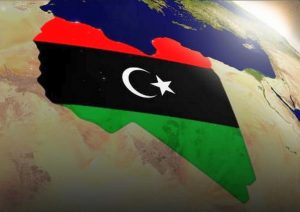The development of the Libyan experience in the transitional justice file
The development of the transitional justice project in Libya suffers from many problems in applying this concept, which requires dealing with numerous challenges produced by Libyan society. It must deal with a large number of cases and must benefit from international expertise in how to achieve transitional justice.
The transitional justice project in Libya began soon after the transformation that resulted from the 2011 uprising when the “Interim National Transitional Council” issued Law No. 17 of 2012, which was promising. This law included mechanisms for national reconciliation and transitional justice and stipulated the establishment of a “fact-finding body” which was purely judicial. It did not represent Libyan society with its various components and did not include representation of victims of violations. Some judicial matters were also addressed by special legislation outside the context of this law, for example Amnesty Law No. 35 of 2011 to deal with the random release of prisoners during the uprising period. The Transitional Council tried to amend its mechanisms to achieve transitional justice through Law 38 of 2012. But instead, it reinforced impunity by not criminalizing any military or security operations carried out by the “revolutionaries” with the aim of protecting the “revolution” and ensuring its success.
After the election of the “General National Congress” in July 2012, the legislative situation continued on the same line in its dealings with the transitional justice file. It began with Law 29 of 2013, which affirmed that transitional justice and national reconciliation relate mostly to “actions that led to a rift in the social Libyan fabric. It also included crimes and violations that occurred in the period following February 2011, which stripped the law of its mandatory punitive power because those deemed necessary to protect and “fortify” the “revolution”, even though those activities did not adhere to its principles.
The same approach continued in the way the legislative authority worked, which issued laws that emptied the national reconciliation process of its spirit. These included Law 13 of 2013 regarding the political and administrative isolation of a large number of those who held political positions during the “Gaddafi” era. This was done without objective criteria for implementing transitional justice which created controversy. Socially, it added a new challenge to national reconciliation, especially after the implementation of Law No. 59 of 2013 issued by the General National Council regarding the “Abu Salim” massacre, and Law No. 31 of 2013, which established some provisions regarding this massacre and considered it a crime against humanity.
When the Libyan House of Representatives was elected in June 2014, its law-making processes came in light of political division. This was manifested in Law No. 6 of 2015, which stipulated an amnesty for all Libyans who committed certain crimes during the period from 15th February 2011, until the issuance of this law, declaring the end of criminal cases against them. It also stipulated that the penalties imposed and their consequences will be waived, provided that a written pledge of repentance is submitted, the money subject of the crime is returned, reconciliation is made with the victim, weapons and crime tools are handed over, and the return to its rightful owners in the case of confiscation on real estate and movable property. Several crimes were excluded which included terrorism, drug trafficking, rape, identity-based murder, kidnapping, torture, corruption, and the Islamic crimes known as “Hudoud”.
Even when the “The Constituent Assembly for Drafting the Libyan Constitution“ tried to deal with the issue of transitional justice, the articles in the draft constitution were general and not linked to a particular period. It dealt with human rights violations and the restoration of confiscated real estate, but they did not oblige the legislative authority to issue a law for transitional justice. This situation did not change when the “Skhirat Agreement” which was signed in Morocco on 17th December 2015. This agreement reduced the concept of transitional justice and reparation to become merely an attempt to reach a settlement. It did not even stipulate compensation or investigation to find out the truth. It stressed the importance of implementing Law 29 of 2013 without addressing its shortcomings. The “Skhirat Agreement” created bodies for which clear terms of reference were not stipulated and were not activated. A fact-finding body, a human rights body, and a body to monitor violations appeared. But it caused confusion and interference in the powers of all bodies responsible for transitional justice, especially since the agreement did not clarify the stages and steps of implementing it.
These developments in the concept of transitional justice applications in Libya prove that the concept itself faces many challenges, especially with the state of division and fighting whose effects appeared over many years.
It seems that the negotiations in Cairo and Morocco in October 2020, which resulted in the signing of a ceasefire agreement between General Hafter and the Sarraj government, and the political dialogue forum which concluded in Geneva in February 5, 2021 by creating a National Unity Government, resulted in emphasizing the importance of laying new foundations for implementing transitional justice in Libya, but with new tools and instruments.
Problems and repercussions of implementing transitional justice in Libya
The previous analysis confirms that the concept and applications of transitional justice in Libya face several hurdles that prevent the effectiveness of the legislation that was issued to implement it. Perhaps the most important of these obstacles include:
- Focusing on the legacy of “Gaddafi”: Some believe that the basic feature of transitional justice in Libya was the quest for revenge against a historical period and its symbols which led to the failure to implement it. There was total emphasis on the legacy of this period as the main reason behind societal division, lack of development, and political polarization.
- Relying totally on legislative processes: All transitional justice projects in Libya were limited to legislative aspects and have not moved to the executive aspects on the ground. They failed to activate law enforcement bodies which led to increased culture of impunity. Despite the intensity of the legal trends and legislative and constitutional frameworks that were developed for transitional justice in Libya, no amendment occurred in criminal procedures, and no new law enforcement mechanisms were formulated. Rather, the legislation included a contradiction between the legislation and the jurisdiction of the bodies entrusted with implementing transitional justice.
- Political divisions: Transitional justice needs appropriate political and institutional context to achieve its goals. The Libyan situation still lacks this context which have developed to include security and armament dimensions and international alliances.
- The Libyans are divided and there is an increase in violations that necessitate the implementation of transitional justice that include post 2011 period. Disagreements in Libya have become not just between cities but between neighbourhoods within cities.
- Reducing the concept of transitional justice to become synonymous with reconciliation: Reconciliation is one of the goals of transitional justice, along with other tools and mechanisms. But the Libyan’s approach to the concept of transitional justice is as if it were synonymous with restorative justice. The latter is a concept that in Libya means senior officials are excluded from bearing criminal and historical responsibility.
- Tribal influence on transitional justice in Libya: The forms of ethnic, political, regional, tribal, and ideological discrimination have a big influence on the concept, foundations, and mechanisms for implementing transitional justice. This creates more challenges in Libya which affects all political settlements and will make it very difficult to implement transition justice, both in material and moral sense.
Towards formulating an alternative to transitional justice in Libya
In order for the transitional justice project in Libya to achieve its goals, a number of conditions must be met, the most important of which are:
- Establishing a comprehensive community project in which all segments of the Libyan people participate. This includes the political, economic, military, social, cultural, and developmental dimensions. This project should be based on acceptable social foundations linked to Libyan society.
- Total commitment to the constitutional and legislative provisions that established transitional justice in Libya.
- Forming a neutral and independent fact-finding committee that represents all sections of society and avoids policies of exclusion and isolation while dealing with issues of marginalization.
- Forming an independent and transparent national integrity committee to address issues of political and administrative corruption and human rights violations. The investigation must be transparent in dealing with the truth of what happened so that each party bears the responsibility for what it committed.
- Form fact-finding committees, transparent and fair trials for perpetrators, compensate victims and their families, engage in a deep political reform process that prevents the recurrence of human rights violations, build law enforcement institutions on strong foundations to enforce the rule of law, and ensure a political will that works to implement the national reconciliation and transitional justice project.
- Restructuring the Libyan Armed Forces to include all Libyans, reformulating the priorities of its military doctrine, and merging the armed groups after reviewing their position and ideology.
- This transitional justice must be led by Libyans, and the role of regional and international parties should be limited to providing support and advice when necessary.
(Adapted from https://www.ecsstudies.com/122


